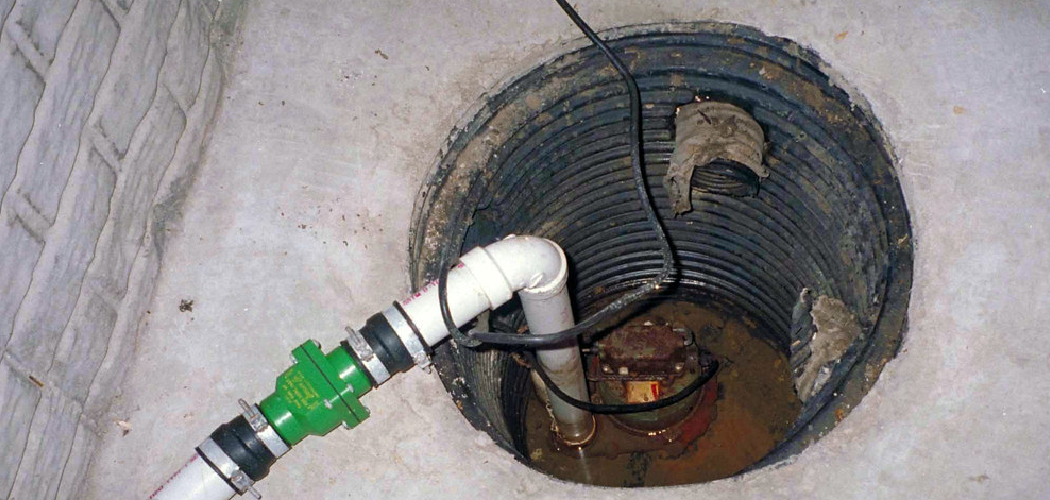If you’ve ever had water come up through your basement floor, you know the importance of a sump pump. A properly functioning sump pump can keep your home dry and protected from water damage. But if your sump pump is too noisy, it can be difficult to get a good night’s sleep.
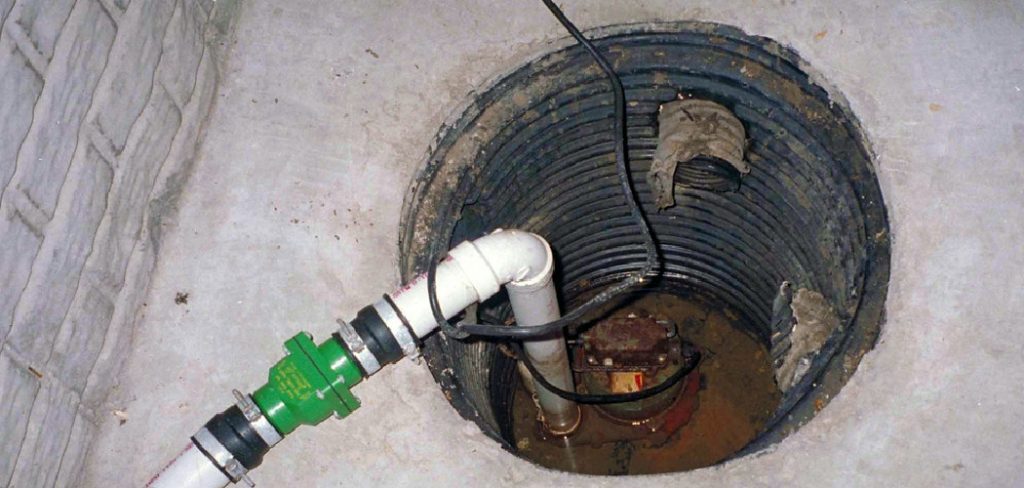
Sump pumps are an important part of your home’s drainage system, but they can be quite loud when they’re running. In this post, we’ll show you how to quiet a sump pump and make it less disruptive. We’ll also share some tips for troubleshooting common issues with sump pumps. Keep reading to learn more!
Why Does Sump Pump Get Noisy?
Sump pumps can get noisy for a variety of reasons. The most common cause of noise from a sump pump is the impeller, which is the part of the pump that moves water through the system. If your sump pump has been installed incorrectly or if there is debris in the impeller housing, it can create friction as it rotates, causing the noise.
It can also happen if your sump pump is too small for the amount of water it needs to move. Although all sump pumps will make some noise, if yours is excessively loud, it could be an indication that something needs to be adjusted.
10 Methods How to Quiet a Sump Pump
1. Use a Soundproofing Cover
One of the simplest ways to reduce the noise emitted by your sump pump is to use a soundproofing cover. These covers are designed to fit snugly over your sump pump, and they help to trap noise inside the unit. Soundproofing covers are relatively inexpensive and can be found at most home improvement stores.
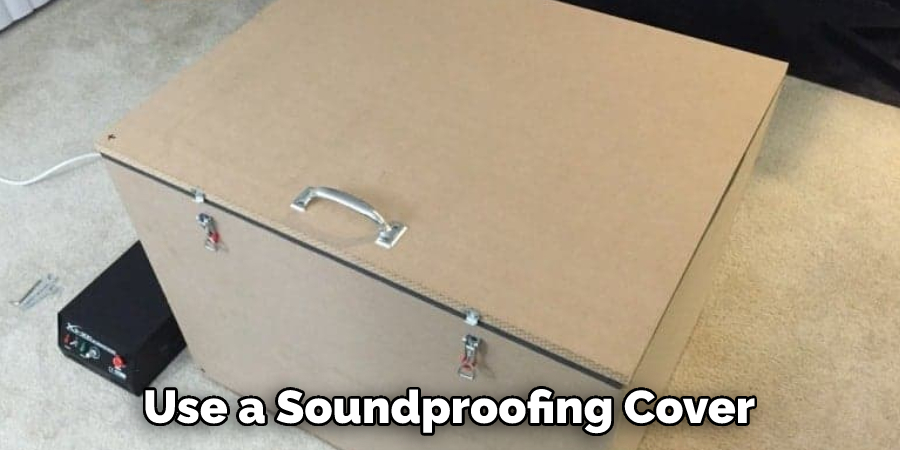
If you have an outdoor sump pump, you may need to purchase a weatherproof soundproofing cover. However, make sure it is designed for use with sump pumps and not just any other soundproofing device.
2. Install Your Sump Pump on a Padding
Another way to reduce the noise emitted by your sump pump is to install it on a padding of some sort. This will help to absorb some of the vibrations caused by the pump and will also help to dampen the noise. You can use any type of paddings, such as old blankets or towels. Simply place the padding under your sump pump before you install it.
Try to make sure that the padding is as thick as possible in order to better reduce any noise. Although this method can help to reduce the noise emitted by your sump pump, it may not be enough, and you may want to consider other methods of soundproofing.
3. Place Your Sump Pump in a Soundproof Box
If you want to completely eliminate the noise emitted by your sump pump, you can place it in a soundproof box. These boxes are designed specifically for this purpose, and they will completely block out the noise emitted by your pump. Soundproof boxes can be expensive, but they are very effective at eliminating noise.
However, it is important to note that some sump pumps may not fit into the soundproof box, so make sure you measure your pump before buying a box. Additionally, make sure that you have enough room for the box in your basement or crawlspace.
4. Use Flexible Tubing
Another way to reduce the noise emitted by your sump pump is to use flexible tubing instead of rigid PVC piping. Flexible tubing is much less likely to transmit vibrations and thus will produce less noise overall. You can find flexible tubing at most hardware stores.
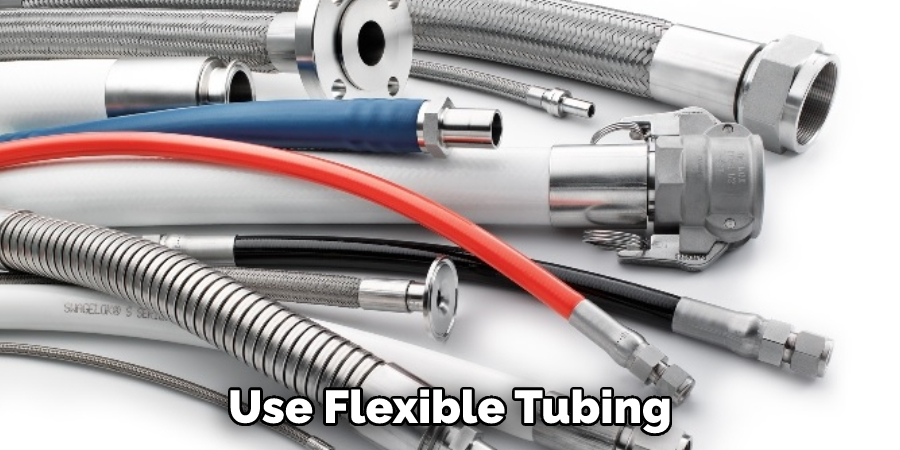
If you have a large sump pump, you may need to use several pieces of flexible tubing in order to create a larger area for the water to flow through. This will reduce the amount of pressure on each individual piece of tubing and thus reduce the noise created by your sump pump.
5. Insulate Your Sump Pit
If you want to further reduce the noise emitted by your sump pump, you can insulate your sump pit with fiberglass insulation or another type of material. This will help to trap the noise inside the pit and will also help to keep your basement warmer in wintertime. While this is an effective solution, it can be a bit messy and time-consuming. However, if you are determined to reduce the sound of your sump pump, this may be a worthwhile option.
6. Place Your Sump Pump on Top of a Rubber Mat
Another way to reduce vibration and, thus, noise is to place your sump pump on top of a rubber mat. This will help to absorb some of the vibrations caused by the pump and will also help to keep it from sliding around on its platform. You can find rubber mats at most hardware stores or online retailers that sell sump pumps. Thus, placing your sump pump on top of a rubber mat can help to reduce the noise it produces.
7. Use Acoustic Foam
Acoustic foam is a type of material that is designed specifically for absorbing sound waves. By placing acoustic foam around or near your sump pump, you can significantly reduce the amount of noise that is emitted by the unit. Acoustic foam can be found at most home improvement stores or online retailers that sell soundproofing materials. Although the foam may not completely eliminate the noise, it can substantially reduce the amount of noise that is coming from the sump pump.
8. Install a Check Valve
If your sump pump has been installed without a check valve, it can create an irritating humming noise when the pump is running. A check valve will help to reduce this noise by preventing the water from flowing back into the pit after it has been pumped out. You can find check valves at most hardware stores or online retailers that sell sump pumps. However, if you’re not comfortable with installing a check valve yourself, it’s best to call a plumber for help.
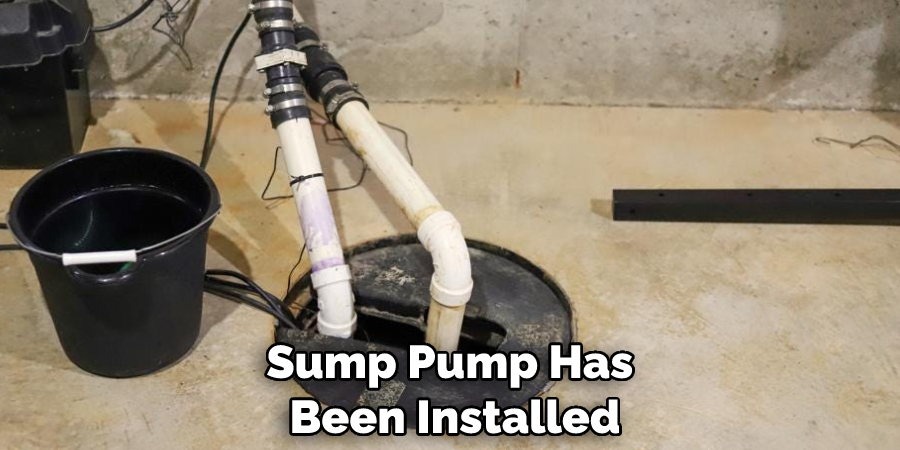
9. Replace Your Pump with a Quieter Model
If all else fails and you still have an excessively noisy sump pump, you may need to replace it with a quieter model. Look for models that are specifically designed to be quiet, as they typically use special motors and impellers that produce much less sound than traditional models.
Try to purchase a model that is the same size as your current pump, so you won’t have to purchase new piping. Additionally, be sure to read reviews of the model to ensure it offers reliable performance and a low noise level.
10. Have Your Sump Pump Professionally Serviced
Finally, if you have done all of the above and still have a noisy sump pump, it may be time to hire a professional to come in and service your unit. A qualified technician can inspect your pump for any underlying issues that may be causing it to make noise, such as clogged filters or damaged impellers. They can also provide advice on how best to quiet your pump so that it is less disruptive to your home.
Things to Consider When Quieting a Sump Pump
1. Sizing:
It is important to make sure that the sump pump you purchase is of a size suitable for your needs. Consider the amount of water that needs to be moved and choose one that can do so effectively.
2. Location:
Where you install it, the sump pump will determine how loud it is when it’s running. Choose an area away from commonly used rooms or sleeping areas, such as closets or basements, if possible.
3. Noise Level:
Some pumps are quieter than others, so consider this when shopping around for a new unit. Look for models with sound-dampening systems designed to reduce noise levels even further.
4. Insulation:
You can also add insulation around the pump to muffle the noise. This can be done with foam or other soundproofing materials.
5. Maintenance:
Regular maintenance will help ensure that your sump pump is running efficiently and quietly. Check the unit regularly for any blockages or issues that could cause it to run louder than necessary.
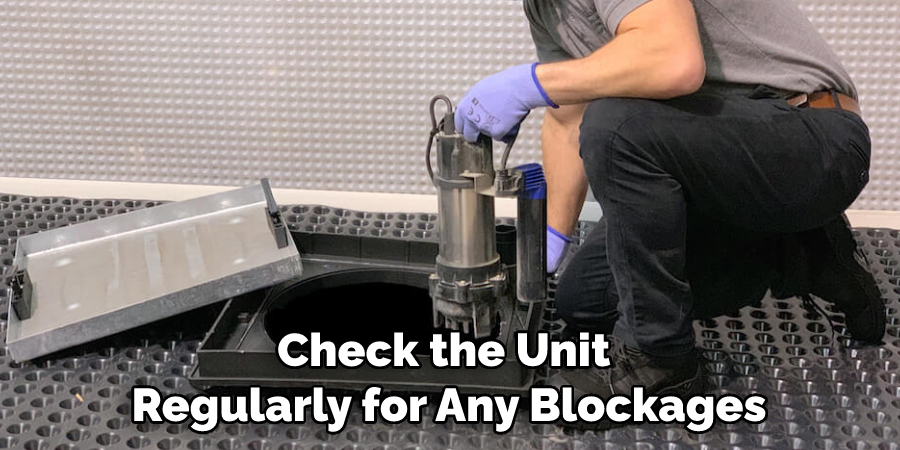
6. Vibration Isolation:
Lastly, consider using vibration isolation pads underneath the sump pump’s base to reduce its vibrations and make it even quieter when running. It may also help extend its life expectancy as well! With these six steps, you can effectively keep your sump pump quiet without having to sacrifice performance or efficiency.
Conclusion
Sump pumps are a great way to protect your home from flooding, but they can be noisy. If your sump pump is too loud, there are a few things you can do to quiet it down. Start by checking for any leaks in the system and make sure the connections are tight.
You may also need to add soundproofing material around the sump pit or buy a new pump that runs more quietly. With a little bit of troubleshooting, you should be able to find a solution that works for you and help reduce the noise from your sump pump.
Thanks for reading our blog post on how to quiet a sump pump! We hope you found it helpful and informative.

